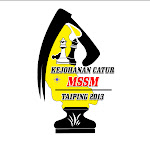Understanding Chess Ratings
When talking about chess, you might hear statements such as "I'm a 1600 player," or "we're playing in the under 2000 section." These numbers being thrown around are called chess ratings, and are an important part of the chess community.
What is a Rating?
Ratings are numbers used to represent the playing strength of chess players. Most rating systems are based on the work of Arpad Elo, and are known as Elo rating systems.The internal workings of chess rating systems can be quite complex, but the basics are simple. Ratings are based on the results of of games between players -- usually, games played in chess tournaments. If a player wins games, his rating will increase; if he loses games, his rating will decrease.
The rating of a player's opponents also effect how that player's rating will change. Defeating a much lower-rated opponent will cause a gain of few (if any) rating points, while defeating a much higher-rated foe will earn a large number of rating points. Losses work the game way, though in the opposite direction; losing to a much stronger player won't effect a player's rating much, but losing to a weaker opponent will cost quite a few points. Draws also effect ratings in a similar manner (drawing a higher-rated player increases ones rating, while drawing a lower-rated player decreases it), though not as dramatically.
Over time, a player's rating should approximate their skill level, allowing players to compare themselves to their peers. As a player improves, their rating will tend to rise.
What do Chess Ratings Mean?
Ratings vary depending on who is issuing them. In terms of United States Chess Federation (or USCF) ratings, a complete beginner who has just learned the rules of chess would likely earn the minimum rating of 100. The average scholastic tournament player has a rating of around 600. A "strong" non-tournament player, or a beginning tournament player that has gained some basic experience might have a rating around 800 or 1000.The average adult tournament player in the USCF is rated around 1400. Very strong adult tournament competitors -- the top 10% or so of that group -- are rated over 1900.
(Since the latest GiLoCatur's (July 2009) national rating is 1143, it means that GiLoCatur is still a below average chess player. Thus, GiLocatur will work hard to achieve a rating of about 1400 so that GiLoCatur can become a better chess player. So, it is GiLoCatur's next target or mission then.)
Prestigious titles are available to the strongest players. These titles are usually award partially or entirely based on ratings. Experts are players with ratings over 2000. Masters are players with ratings over 2200. Earning the International Master or Grandmaster title requires more than just a high rating, but these players are typically rated over 2400 and 2500, respectively. The best players in the world are rated over 2700; the highest rating ever achieved was 2851, by former World Champion Garry Kasparov.
How do Players Earn Ratings?
A chess rating can be earned in a variety of ways. Online chess sites often offer their own ratings, which are useful for finding appropriate opponents while playing online. Some chess clubs also keep their own informal ratings.When most people speak of chess ratings, however, they are speaking of ratings assigned by a national chess federation (or by FIDE, the International Chess Federation). These ratings are earned by playing in sanctioned tournaments. After each tournament, the results are sent to the federation rating the event, where they are processed and used to update the ratings of the competitors.
(The sad part in our local chess tournaments is that not many are national-rated ones. For a chess tournament to be a national-rated event, the organizer has to pay a fee and submitted to the authorized ratings officer which is Mr IA (International Arbiter) Lim Tse-Pin. The tournament also needs to fulfill certain criteria like enough minimum percentage of rated players.)
Source : http://chess.about.com/od/chesscommunities/qt/Ratings.htm










No comments:
Post a Comment